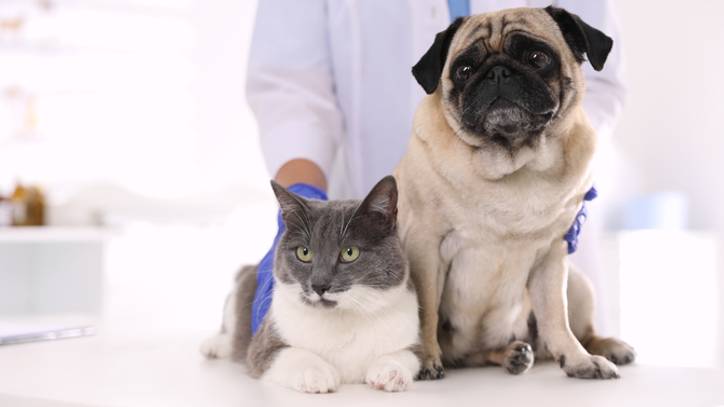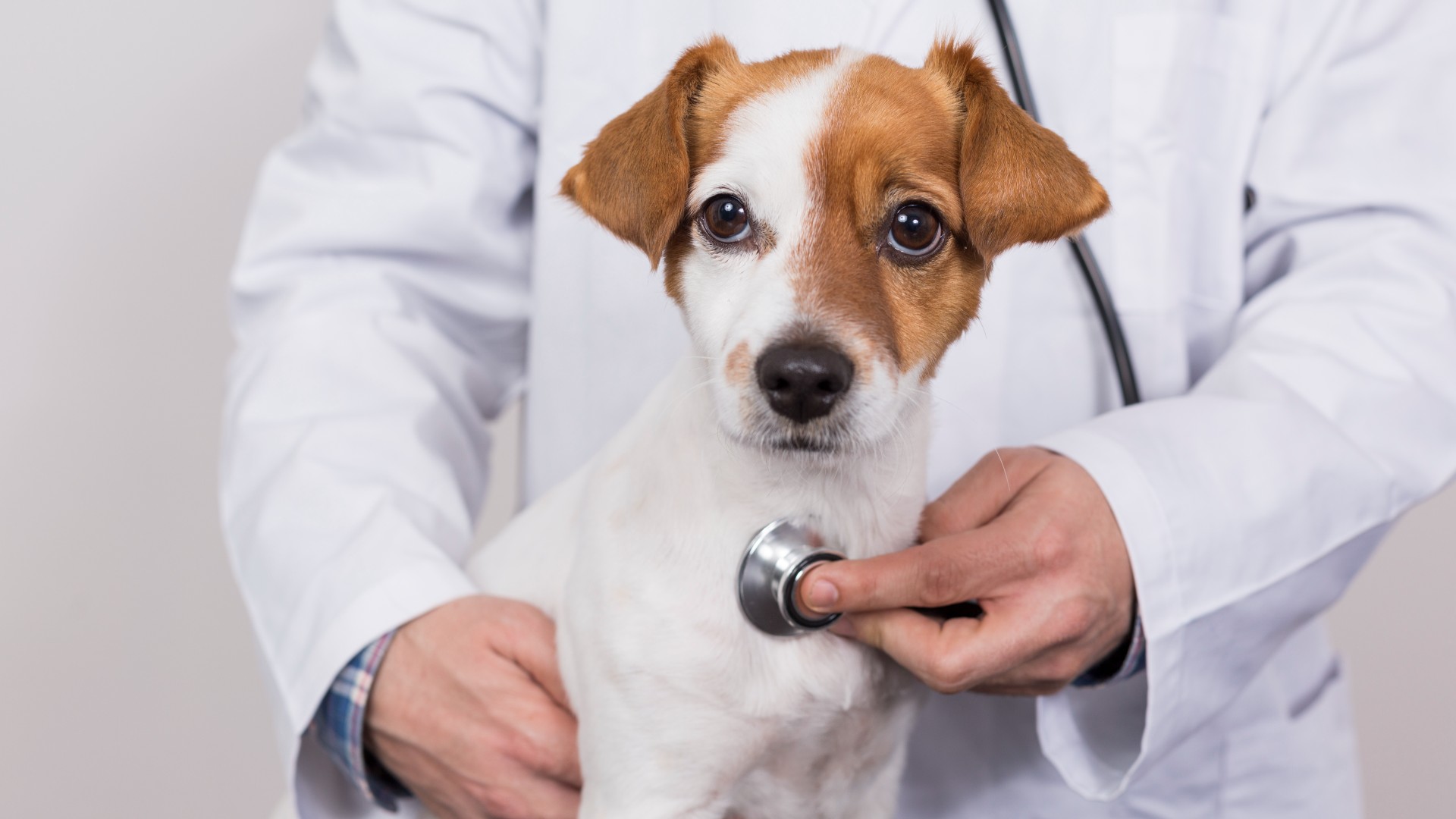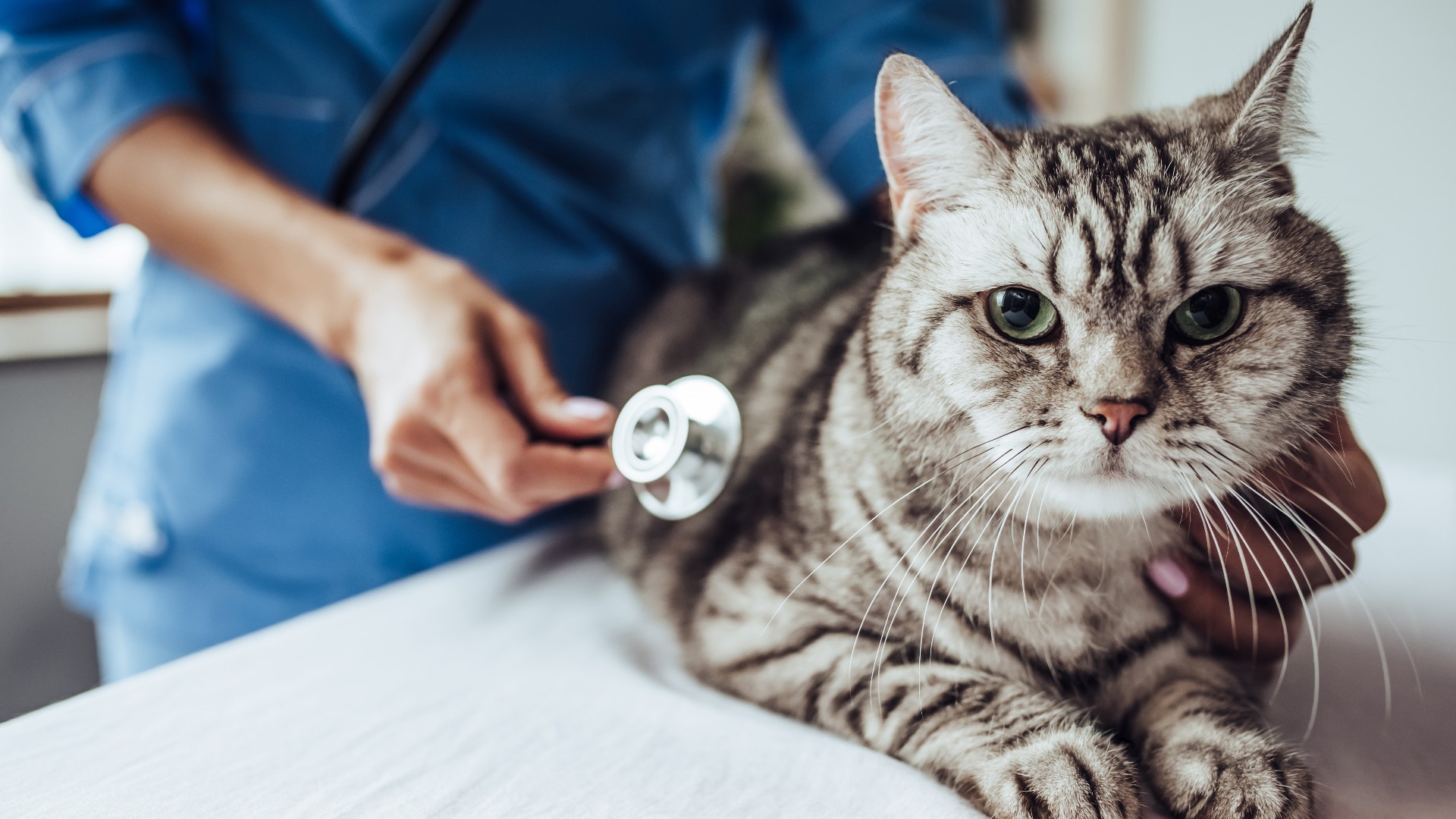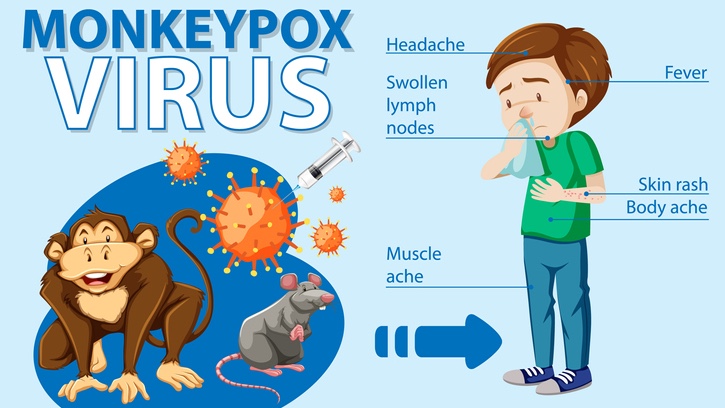Monkeypox in pets: How concerned should we be?
Should we be concerned about the emergence of monkeypox in pets? We answer the important questions, including what to look out for

Get the best advice, tips and top tech for your beloved Pets
You are now subscribed
Your newsletter sign-up was successful
Although monkeypox was first identified in humans in the early 1970s, you may not have heard of it until relatively recently. The identification of monkeypox in pets has only just hit headlines, but for the past 40 or so years, the virus has been largely contained within the African continent.
From early May 2022, however, it became widely reported in the news when it started to spread across Europe and North America (countries where it is not endemic).
Now declared a global health emergency, cases have surged, with tallies in the United States and United Kingdom alone totalling in their thousands (Australia, by contrast, has had far fewer).
Amongst these cases is an Italian Greyhound testing positive for monkeypox. It's the first possible case of human-to-dog transmission and many pet owners are becoming alarmed.
In effect, this means monkeypox is not only being transmitted between humans but it is also capable of spreading to our pets. Does this mean we should be concerned for the animals we care for as well as ourselves? And if so, just what are the signs and symptoms of monkeypox and how harmful can it potentially be?
Can monkeypox infect pets?
As we've seen from the case of an Italian Greyhound testing positive, dogs can certainly be infected with monkeypox. In this instance, the virus was transmitted to the dog by humans – its owners were diagnosed with the virus at the Pitié-Salpêtrière Hospital in Paris 12 days previously and a report published in The Lancet said the two men had allowed their four-year-old dog to sleep in the same bed as them.
But there are many other cases of the monkeypox virus being present among animals. The World Health Organization says infection is present among rope squirrels, tree squirrels, Gambian pouched rats and dormice as well as non-human primates (in endemic countries, only wild animals carry the virus), while the Centers for Disease Control and Prevention (CDC) says we're still learning about which animals may be susceptible to it. Still, the bottom line is that, yes, pets can potentially be infected.
Get the best advice, tips and top tech for your beloved Pets

How do animals get monkeypox?
Monkeypox outbreaks typically happen in central and west Africa in proximity to tropical rainforest but the principle of transmission between animals is the same the world over.
“Monkeypox is usually carried by primates, rodents, rabbits, and humans,” says veterinarian Dr Joanna Woodnutt MRCVS. “Spread is by direct close contact with the sores or materials in the environment.”
In the case of the single human-to-dog transmission known so far, close contact with its human owners is indeed likely to have caused the spread (the owners kept themselves and their dog away from others once they began to display symptoms but they had infectious lesions). Animals can also become infected from other animals through a scratch or a bite.
As for spread between humans, that tends to be caused by contact with infectious sores, scabs or bodily fluids. It can also transmit between humans by kissing, hugging, massaging and cuddling as well as via exposure to prolonged coughing, sneezing, breathing and talking. The word “prolonged” is key here!

After graduating as a veterinarian from the University of Nottingham, Dr Joanna Woodnutt went on to practice companion animal medicine in the Midlands. She quickly developed a love of consulting and helping clients with medical problems such as dermatology, behavior and nutrition, and has written for countless online and print publications
Can dogs and cats get monkeypox?
Dogs can certainly get monkeypox and they can be infected with the exact same strain as humans. We know this to be true following testing of the Italian Greyhound which contracted the virus. But what of other pets? The CDC lists many animals and says it's not yet known if guinea pigs, hamsters, gerbils or cats can be infected by the virus.
Certainly, there have been no cases of infection among these animals to date. But a word of warning for owners of adult rabbits: it's possible that they could catch the virus and they may well be able to spread it to pets.
“Theoretically your dog could catch monkeypox from eating a dead rabbit with monkeypox but there is very little of it around, making this extremely unlikely,” Dr Woodnutt says.
What is the guidance around monkeypox and pets?
As it stands, the risk of your pet getting monkeypox is very slim. There has been one solitary worldwide case of a dog being infected so far and there really is no cause for panic or alarm as it currently stands.
Of course, the situation could change but let's take Covid-19 as an example: owners of dogs and cats were concerned their pets would contract the virus but, while pets can become ill from infection with coronavirus, cases remain rare.
“It’s pretty rare for a dog to catch monkeypox,” adds Dr Woodnutt. “For the average dog, it’s extremely unlikely that any new lumps or warts are monkeypox. To catch monkeypox, animals would have to be in very close contact with a human with monkeypox."
"While it’s possible that dog-dog transmission can occur, it hasn’t been shown yet, and this would, again, require close and sustained contact. In other words, if you or someone else living with your dog hasn’t got monkeypox, your dog probably doesn’t have it either.”

What are the symptoms of monkeypox in pets?
The Italian Greyhound developed skin and mucosal lesions but you should also watch out for other signs such as nasal secretions, fever, a lack of appetite and lethargy. Look out, too, for a rash on the abdomen and anus. “With what we know so far, it appears that pets have similar symptoms to humans,” says Dr Woodnutt. “You might notice a cough or conjunctivitis as well.”
You should be particularly vigilant if you or someone in your household has monkeypox. There's a chance they will be at greater risk of catching it from you. Remain alert for up to 21 days given how long it took for the Italian Greyhound to catch the virus. And be especially careful if you keep rodents and rabbits.
“Rodents and rabbits are known to be able to catch monkeypox,” says Dr Woodnutt. “So if you or someone in contact with your pets has monkeypox, you should be vigilant for signs in your rabbits and rodents. It’s prudent to take care bringing in any new rabbits or rodents to the house right now – if you need to adopt a new pet, consider isolating them from your existing pets for a couple of weeks to ensure they aren’t carrying the virus.”

How is monkeypox treated in dogs?
If you suspect a dog has monkeypox, seek immediate veterinary care – call your vet beforehand rather than immediately take your dog to the surgery otherwise you may risk spread. Ensure the animal is separated from other animals and people as best you can for at least 21 days after illness and ensure that anyone who is immunocompromised, pregnant, under the age of eight or has a skin condition is kept away.
As for the treatment procedure, that is still being worked out. “Monkeypox is still extremely rare in pets and treating animals isn’t something I’ve ever had to do,” says Dr Woodnutt. “There is no specific treatment, but supportive care and medication to treat any symptoms is likely to be all that’s needed.”
Can monkeypox kill pets?
Monkeypox is a serious health problem and, while it is rarely fatal in humans, there is a chance it can kill people and pets. It appears much depends on whether there are other underlying health issues.
For humans, a vaccine is being offered to healthcare workers who are caring for patients with confirmed monkeypox and anyone who has had close contact with someone with confirmed monkeypox.
The vaccine is also recommended for gay, bisexual and other men who have sex with men. If you have pets and are eligible, vaccination could help to prevent you from spreading monkeypox to people and pets.

What can owners do to protect their pets?
You don't need to take any specific measures unless you have monkeypox or believe you are at a high risk – in which case, refraining from close contact with a pet would be advisable.
“At the moment, it’s important not to panic,” says Dr Woodnutt. “Monkeypox appears to be mild in the developed world, and there have been no fatalities in humans. It’s extremely rare for pets to catch it. The best protection is awareness of the disease. If owners contract monkeypox then they should take hygiene measures to try to prevent it spreading around the household or to their pets.”

David Crookes has been a journalist for almost 30 years and he has written for a host of magazines, newspapers, websites and books including the World of Animals Annual, BBC Earth, Live Science, The Independent and Tom’s Guide.
Born in England, he lives with two cats but he’s also keenly interested in the differences between the huge number of dog breeds – in fact, you can read many of his breed guides that he’s written in collaboration with vets here on PetsRadar.
With a lifelong passion for technology, too, he’s always on the lookout for useful devices that will allow people to keep their pets happier and healthier, and provide them more time to spend together.
David has a degree from Durham University, as well as postgraduate diploma in journalism from the University of Central Lancashire.
